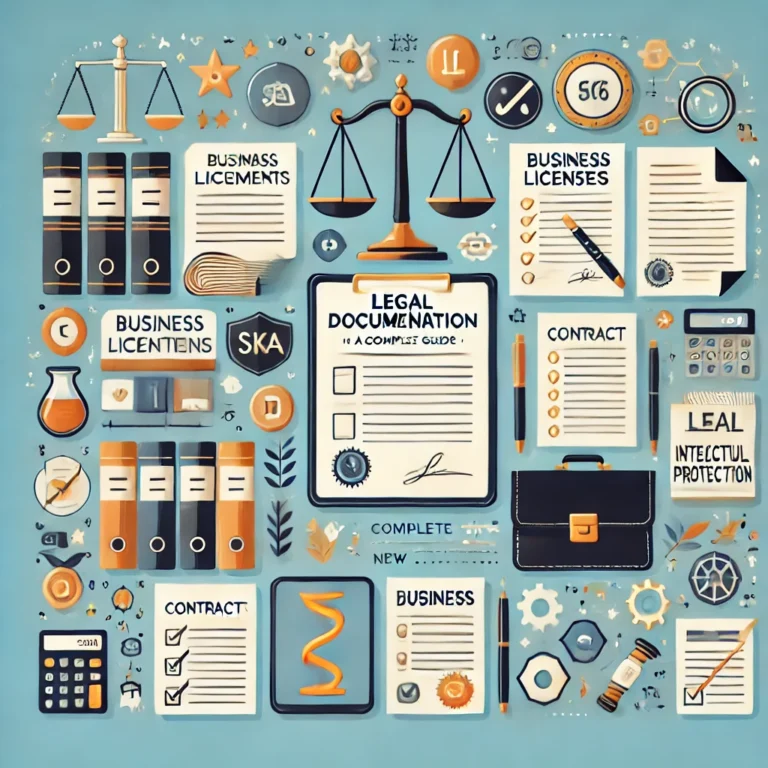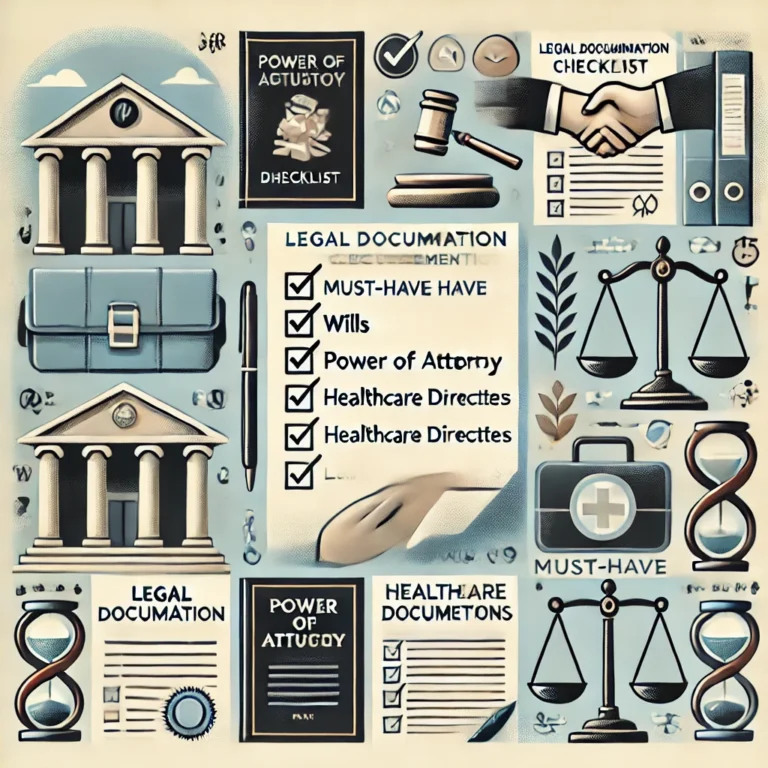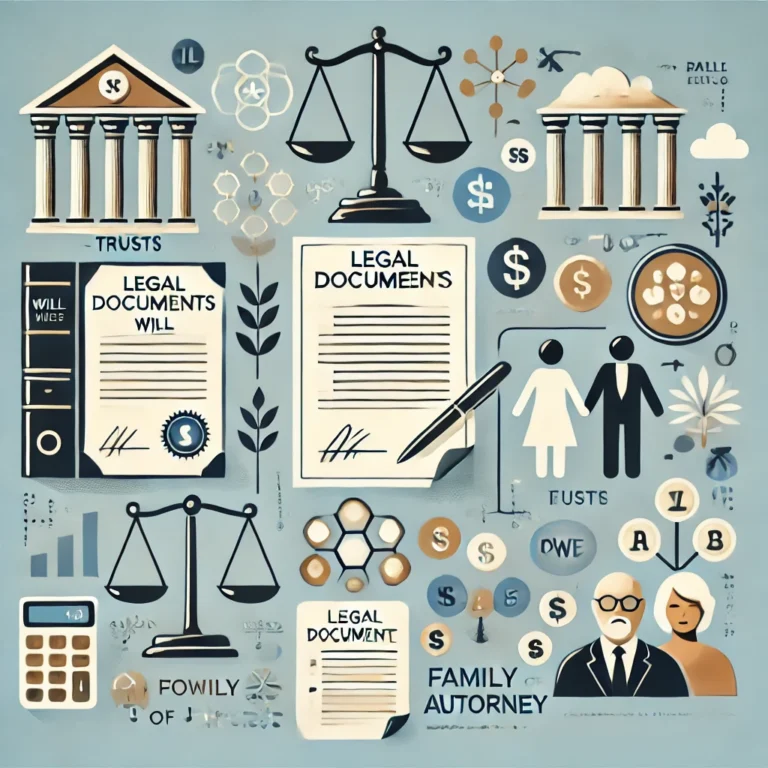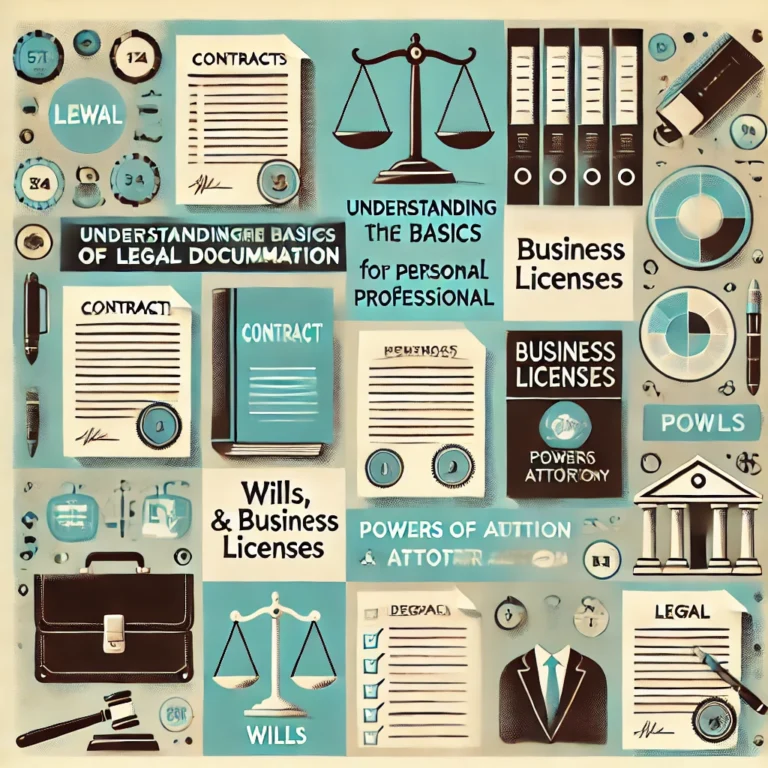How to Prepare Legal Documentation for Small Businesses
Starting a small business is exciting, but let’s be honest – the paperwork can feel overwhelming. However, preparing proper legal documentation is crucial for your business’s success and long-term survival. You can think of legal documents as the backbone of your business, protecting you from liabilities, ensuring you comply with the law, and clarifying your relationships with clients, employees, and partners. But where do you even start? If you’re asking that question, you’re in the right place. Let’s break down how you can prepare legal documentation for your small business, step by step.
Why Legal Documentation is Important for Small Businesses
Legal documents might feel like a hassle, but they are the foundation of a legally sound business. Having the right paperwork ensures you avoid potential legal troubles down the line. It keeps your business running smoothly by defining your rights and responsibilities clearly.
Not only that, but legal documentation helps create trust with partners, customers, and employees. When everyone knows what’s expected of them, there’s less room for misunderstanding. Plus, investors or lenders will require specific legal documents if you ever need funding.
Types of Legal Documentation Your Small Business Needs
Depending on the nature of your business, the legal documents you need may vary. However, some forms of documentation are essential for almost all small businesses.
1. Business Formation Documents
Before anything else, you need to establish your business legally. This usually involves choosing a business structure such as a sole proprietorship, partnership, limited liability company (LLC), or corporation. Each type of business structure requires different documents.
- Sole Proprietorship: Generally, no formal documentation is needed, but you may still need to obtain licenses and permits.
- LLC or Corporation: You’ll need to file Articles of Incorporation (or a similar document) with the state. An LLC operating agreement or corporate bylaws are also necessary.
2. Operating Agreement or Bylaws
An Operating Agreement (for LLCs) or Bylaws (for corporations) lays out how your business will be run, including how decisions will be made and how profits and losses will be shared among the owners. If you’re a single-owner LLC, this document may not seem essential, but it’s highly recommended for legal protection.
3. Business Licenses and Permits
Depending on your industry, location, and services offered, you may need various local, state, or federal licenses and permits. Check with your local government or use online resources to determine which permits apply to your business. Not having the right licenses could result in hefty fines or even force you to shut down.
4. Non-Disclosure Agreement (NDA)
An NDA is essential if you plan to share sensitive information with employees, partners, or vendors. This document ensures that proprietary information—such as trade secrets, business plans, or customer lists—stays confidential.
5. Employment Agreements
If you’re hiring employees, you’ll need an Employment Agreement that outlines the terms of their employment, including salary, benefits, job responsibilities, and termination procedures. This document protects both you and your employees by clearly stating expectations and preventing disputes down the line.
6. Independent Contractor Agreement
If you’re hiring freelancers or independent contractors, this document is essential. An Independent Contractor Agreement outlines the terms under which contractors will work, including payment terms, deliverables, and deadlines. It also clarifies that the contractor is not an employee, protecting your business from labor disputes.
7. Privacy Policy
If your business collects any personal data from clients or customers—such as through a website—then a Privacy Policy is not optional. This document is often required by law (depending on your country) and details how customer information will be collected, used, and protected.
8. Terms and Conditions
For businesses with an online presence, Terms and Conditions lay out the rules for using your website or services. This is where you can outline disclaimers, limit your liability, and establish legal guidelines for disputes.
9. Intellectual Property Agreements
Do you have intellectual property (IP) that needs protection, such as a logo, brand name, or product design? IP Agreements, like copyrights, trademarks, and patents, help protect your creations from being copied or used without permission. Make sure you register these agreements with the relevant authorities to gain full legal protection.
How to Draft These Documents
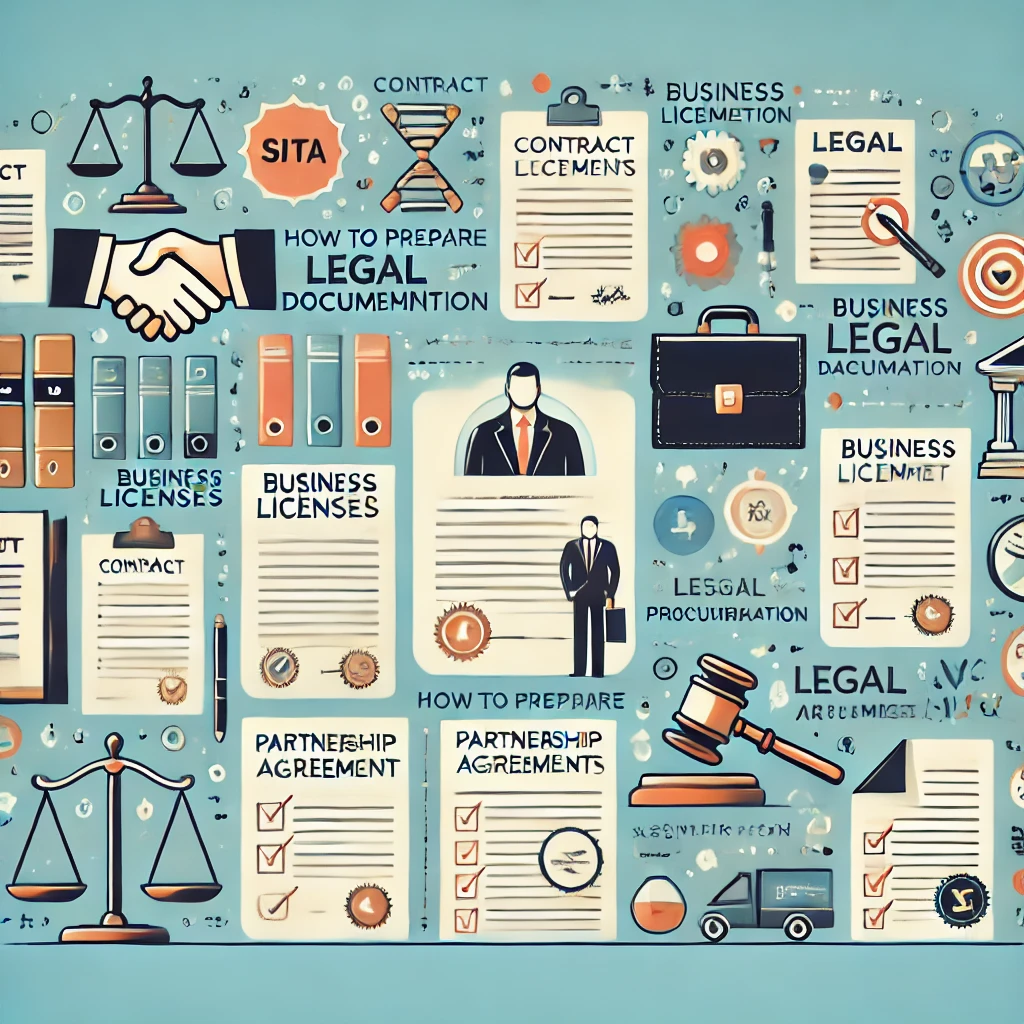
You don’t need a law degree to create basic legal documents for your small business, but you do need to understand their purpose and how to create them properly.
10. DIY vs. Hiring a Lawyer
When it comes to drafting legal documentation, you have two main options: Do It Yourself (DIY) or hire a lawyer. Many online services provide templates for common business documents, which are affordable and user-friendly. However, if your business is more complex or high-risk, it might be worth the investment to hire a lawyer.
11. Use Legal Templates Carefully
There are plenty of online resources offering free or low-cost legal templates. While these can save you time and money, be careful. Not all templates are created equal, and they might not fully cover your specific business needs. Always tailor templates to fit your business’s structure and operations, and consider having a lawyer review them.
12. Be Detailed But Clear
When drafting legal documents, it’s crucial to be thorough yet concise. Include all the necessary information but avoid using overly complicated legal jargon. Your documents should be clear enough that anyone involved can understand their rights and obligations.
Important Clauses to Include in Your Documents
When drafting legal agreements, certain clauses can protect your business from potential risks.
13. Indemnification Clauses
Indemnification clauses transfer risk from one party to another. For example, if you’re hiring a contractor, an indemnification clause ensures they are responsible for any mistakes or legal issues that arise from their work.
14. Limitation of Liability
This clause limits your legal responsibility if something goes wrong. For instance, if a client sues you for damages, a limitation of liability clause can cap the amount they can claim.
15. Governing Law
A governing law clause states which jurisdiction’s laws will apply in the event of a legal dispute. Make sure this clause favors your local laws to avoid having to deal with unfamiliar legal systems.
Storing and Updating Your Documents
Legal documentation isn’t a “set it and forget it” task. It’s something you should regularly review and update to reflect changes in your business.
16. Where to Store Your Documents
Keep both physical and digital copies of all your business documents. Cloud storage solutions like Google Drive or Dropbox are excellent for ensuring easy access and security. For sensitive documents, consider encrypting your files.
17. Review and Update Regularly
Businesses evolve, and so should your legal documents. If you change your business structure, hire new employees, or update your services, your documents need to reflect these changes. Set a reminder to review your legal documents annually or when major business events occur.
When to Seek Professional Help
While it might be tempting to handle everything on your own, some situations require professional legal assistance. If you’re unsure about the legal requirements for your business, or if you’re dealing with complex agreements, it’s wise to consult with a lawyer.
18. Common Scenarios Needing Legal Assistance
- Forming a Corporation or LLC
- Raising capital or securing investors
- Buying or selling a business
- Entering into complex contracts
These situations involve high stakes, and getting professional advice can save you from costly mistakes.
Conclusion
Creating the right legal documentation for your small business is not the most exciting part of entrepreneurship, but it’s one of the most critical. From protecting your personal assets with the right business structure to securing your intellectual property, these documents are your first line of defense against potential legal issues. Whether you use online templates or hire a lawyer, the key is to be thorough, clear, and proactive. Take the time to ensure your business is legally sound now, and you’ll thank yourself later.
FAQs
1. What are the essential legal documents for a small business?
Essential documents include business formation documents, operating agreements, business licenses, NDAs, employment agreements, privacy policies, and terms and conditions.
2. Can I write legal documents myself?
Yes, but it’s important to be thorough and accurate. Many business owners use online templates, but consulting a lawyer for critical documents is highly recommended.
3. How often should I update my legal documents?
It’s a good practice to review your documents at least once a year or whenever significant business changes occur, such as a new partnership, employee hire, or service update.
4. What is an NDA, and do I need one?
A Non-Disclosure Agreement (NDA) protects your confidential information from being shared with third parties. It’s essential if you’re sharing proprietary information with partners, employees, or contractors.
5. Why do I need a privacy policy for my website?
A privacy policy is legally required if you collect personal data from users. It informs customers how their data is collected, stored, and used, ensuring transparency and compliance with data protection laws.


